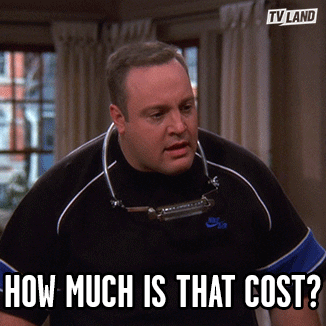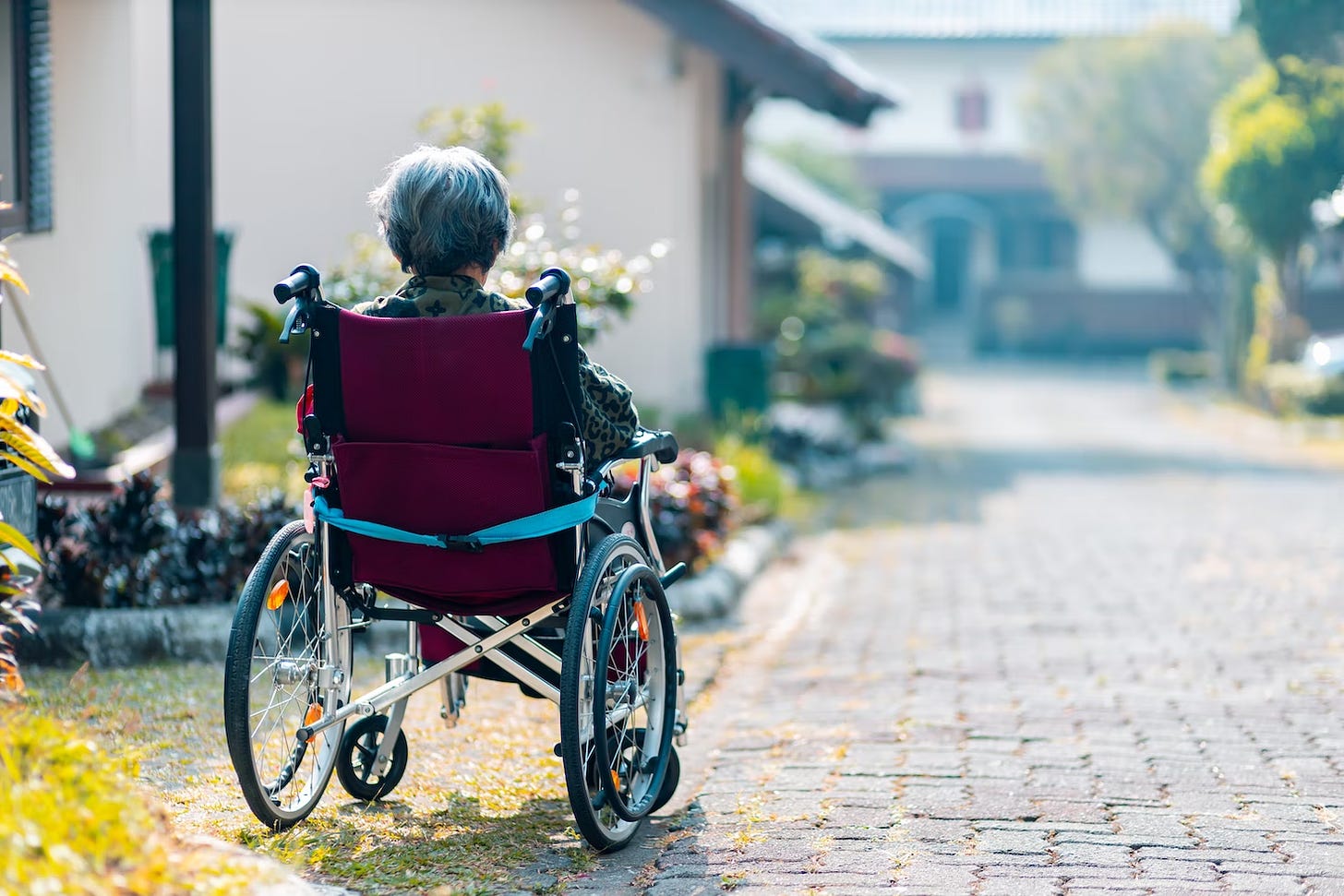What's enough: Are you buying & paying too much for insurance in Singapore?
Find out if you have your basic insurances or overinsured

Insurance is an important part of life. Most people in Singapore have policies to protect themselves and their families in case of an emergency or accident.
But what many people are confused about is the type of insurance they’re buying and the cost of those policies.
“Am I paying too much for health insurance?”, “Thoughts on my insurance plans in Singapore”, and “Should I give up my policies” are all common questions that we see on finance platforms and the SingaporeFI community on Reddit.
So, which insurance to buy and how do you know if you are paying too much for your policies? Let’s settle the debate once and for all.
How Much Is Too Much For Insurance
As a rule of thumb, medical insurance premiums should not exceed 10% of one’s monthly take-home pay. But the exact amount depends on whether you have dependents and/or need greater coverage.
Questions To Ask Yourself Before Buying Your Insurance In Singapore
1. How much can I afford monthly?
When buying your insurance, it’s crucial to first factor in how much you can afford to pay each month. Insurance is a long-term expense that can stretch up to 20 years or more. It’s best to only commit to an amount that you can comfortably afford.
To begin, first evaluate your current cash flow by splitting your expenses into essentials, savings, and remainder. Next, determine what you can allocate towards your insurance premiums from the remainder.
This amount will vary for each individual, depending on his income, expenses, and financial goals.
2. What type of insurance do I need in Singapore?
So, which insurance should you buy in Singapore? Here are the different policies ranked in ascending order of importance. (most important to least important)
a) Hospital insurance:
Hospitalisation insurance is the most important insurance you should buy in Singapore. It provides protection against unexpected medical costs, including hospitalisation fees, surgery, and dialysis.
Whilst we have MediShield Life that covers B2 and C wards in government hospitals, it is recommended to get an Integrated Shield Plan (IP) which gives you higher claim limits and covers the costs for stays in B1 wards and above.
Even better, IP premiums can be paid using CPF MediSave up to the Annual Withdrawal Limit, which is $300 for those under 41 years old. This means minimal to no out of pocket costs. There is really no reason not to get one if you’re below the age of 41 years old!
Next on the list is a rider, an add-on to your IP.
IP without rider: If you purchase an IP without a co-pay rider, you will have to pay for the deductible upfront and co-pay 10% of your medical bill (uncapped) before your insurance payout. This means that you might still have to pay a considerable amount even if you own an IP.
For instance, let’s say Josh’s hospitalisation bill amounts to $100,000. Without a co-pay rider, he would first have to pay $3,500 for staying in a Class A ward in a public hospital. Then, he would have to pay 10% co-insurance, which would amount to $9,650, adding up to a total of $13,150.
IP with rider: The rider reduces your out-of-pocket medical bills to 5% (capped at $3,000). Instead of paying $13,150, Josh simply pays $3,000 for his medical bill.
Riders also allows you to qualify for non-Cancer Drug List claims–very handy given there are recent major changes to the types of cancer medicines that can be claimed.
tldr: Get hospital insurance with a cash rider, there’s no other way around it
Do I need hospital insurance? Hospital insurance with IP and rider is a must havefor everyone in Singapore. Medical bills are no joke and can easily wipe out your entire savings should you ever become hospitalised.
Enjoying the content? Subscribe for free to receive new posts and support us at DTF!
Subscribe
b) Disability insurance
Another important insurance to buy in Singapore is disability insurance, which provides monthly financial support to policyholders who are unable to work due to a disability.
It pays out a percentage of the policyholder’s regular income on a monthly basis for the duration of the policy term or until he can return to work.
Do I need disability insurance? Disability insurance is recommended for:
-
Young adults beginning their careers. Your most valuable resource is your long-term earning potential which you’d need to safeguard.
-
Individuals who have obligations like debts and dependents. A loss of income can be significantly disruptive to your dependents’ lives.
c) Life, Total Permanent Disability, and Critical Illness insurance:
Next on the buy list are Life, Total Permanent Disability (TPD), and Critical Illness (CI) insurance. These three are different types of insurance that are typically bundled together.
Life insurance provides a financial payout to designated beneficiaries during the policyholder’s death. You can choose between whole life or term plans. Term plans are often recommended because it is cheaper, leaving more money available for investments. If you invest in a broad market ETF, your investments will typically beat the projected interest rates of whole life plans.
Meanwhile, TPD insurance provides a lump-sum payment in the event that the policyholder becomes permanently and totally disabled and unable to work. This differs from the monthly disability insurance as it’s a one-time, lump-sum payment.
Last but not least, CI insurance provides a lump-sum payment if the policyholder is diagnosed with one of the 37 types of critical illness, such as cancer, heart attack, and stroke. Other than late-stage CI insurance, multi-pay CI and early CI policies are growing in popularity due to advanced technologies that allow us to detect illnesses earlier.
Do I need Life, TPD, and CI insurance?
-
Life and CI insurance: This is particularly important for those who have dependents like young children and aged parents who rely on their income.
-
TPD insurance: Compared to death, having a permanent disability would mean additional recurring expenses, such as assistive medical devices and medication. Family members may even need to provide care for the individual, possibly on a full-time basis.
d) Personal accident (PA) insurance:
PA insurance provides a cash payout upon injury, disability, or death. They may also cover the costs of mobility aids, rehabilitation costs, and home accessibility renovations services.
Be sure to read the fine print and make sure your PA insurance covers for disability! Some insurers only provide payouts for dismemberment and not disability. Sometimes, you may have all limbs attached (not dismembered) yet cannot carry out daily living activities (i.e disabled).
Do I need PA insurance? Those who engage in high-risk activities during leisure time (e.g bouldering and scuba diving etc.) or at work (e.g. construction worker and policemen etc.).
3. How much insurance coverage do I need?
Here is the recommended amount of coverage for each type of insurance. We chose to use both income and expenses as a basis of comparison as it really depends on your needs and financial ability.
Hospital insurance: Minimally, opt for an IP with a rider that covers Class A in public hospitals. Get IP with a rider that covers treatments at private hospitals if you can. This ensures the fastest treatments with a doctor of your choice. As IP premiums rise substantially with age, you can opt to switch out to the most basic IP (B1 ward) in your older years if the premiums are too much to handle.
Disability insurance: Typically, it’s at least 80% of your monthly income/expenses. The goal is to cover your basic needs and maintain a similar standard of living.
Life insurance: 9-10 times your annual income/expenses, whether you choose a whole life or term life plan.
TPD insurance: 9-10 times your annual income/expenses.
CI insurance: 3-5 times of your annual income/expenses as this is typically the amount of time an individual needs to recuperate from a critical illness.
PA insurance: There’s no general rule of thumb for PA insurance, but it is a cheap way to supplement your TPD coverage. Minor injury like ankle sprains usually does not warrant the need to be insured against. However, major conditions like accidental disability is what’s more important.
Maximise Your Protection With Minimum Insurance Costs
Insurance is a necessary expense for many people in Singapore.
It’s all about finding the right balance between ensuring you’re adequately protected and what you can afford. Even then, your affordability and the optimum amount of insurance coverage you require will also change over your different life stages.
Remember, change is the only constant in life and adaptability is the key to success.






